After years of hard work, legislation to recruit, retain and reactivate hunters becomes a reality.
Signed into Law
Do you have any thoughts on this post?
After years of hard work, legislation to recruit, retain and reactivate hunters becomes a reality.
Bipartisan bill to keep the government open includes Pittman-Robertson Modernization Act
In one of the biggest conservation victories of the year, bipartisan leadership in the House and Senate released legislation to invest in the future of hunting and secure new investments in wildlife and habitat.
The bipartisan compromise to fund the government through September 2020 includes historic legislation that for the first time allows excise taxes on firearms and ammunition to be used to recruit, retain, and reactivate hunters.
As the number of hunters decline nationally, the Modernizing the Pittman-Robertson Fund for Tomorrow’s Needs Act will ensure that millions of more active and engaged outdoorspeople are paying into conservation and supporting some of America’s greatest traditions. This legislation has been a top priority for the Theodore Roosevelt Conservation Partnership, which has actively worked to include it in the year-end government funding deal.
“Every time hunters purchase guns and ammo they invest in habitat and wildlife, and this legislation will help avert a major conservation funding crisis,” said Whit Fosburgh, president and CEO of the Theodore Roosevelt Conservation Partnership. “We cannot underscore the importance of this bill for sportsmen and women, conservation, and the next generation of hunters. We hope everyone in the House and Senate will stand with hunters across the nation and send this to the President’s desk for swift signature.”
Between 2011 and 2016, the number of hunters declined by 16 percent contributing to a decline in funding from hunters.
“This is truly a landmark day for hunting and conservation,” said Fosburgh.
Read more about how the Modernizing the Pittman-Robertson Fund for Tomorrow’s Needs Act supports conservation HERE.
To take action and tell Congress to get this bill across the finish line sign our petition today.
This year, REI challenges everyone who loves the outdoors to opt to act in service of public lands and habitat
In 2015, our friends at REI laid down the original challenge: They would pay their workforce to stay home on Black Friday, and meanwhile they urged ALL Americans to spend time outdoors instead of shopping. Since then, #OptOutside has become a movement embraced by hikers and hunters alike.
But this year, the company admits that it isn’t enough.
It’s easy to choose to spend our time on America’s public lands and waters instead of in malls this holiday weekend. But—as REI’s president and CEO Eric Artz writes in the most recent Co-op Journal—outdoorsmen and women of all stripes must opt to act as well. Our natural resources face new and enduring challenges, and it will take all of our voices in harmony to push back on bad conservation policies and habitat setbacks that could take decades to undo.
Fortunately, this is pretty much the business that we’re in here at the TRCP—giving you opportunities to take action on the issues that are most critical RIGHT NOW.
And, not to brag, but we never waste your time with misdirection or scare tactics. If you’re hearing from us, it’s because critical or damaging legislation is on the move and you have a chance to make a difference. We translate the wonky policy language that some decision-makers are hoping will confuse you, and we provide hunters and anglers with the tools to make your voices heard in a few clicks or less.
If you’re willing to do more than simply enjoy the outdoors this Black Friday, here are five things you can do to safeguard all the ways we #OptOutside.
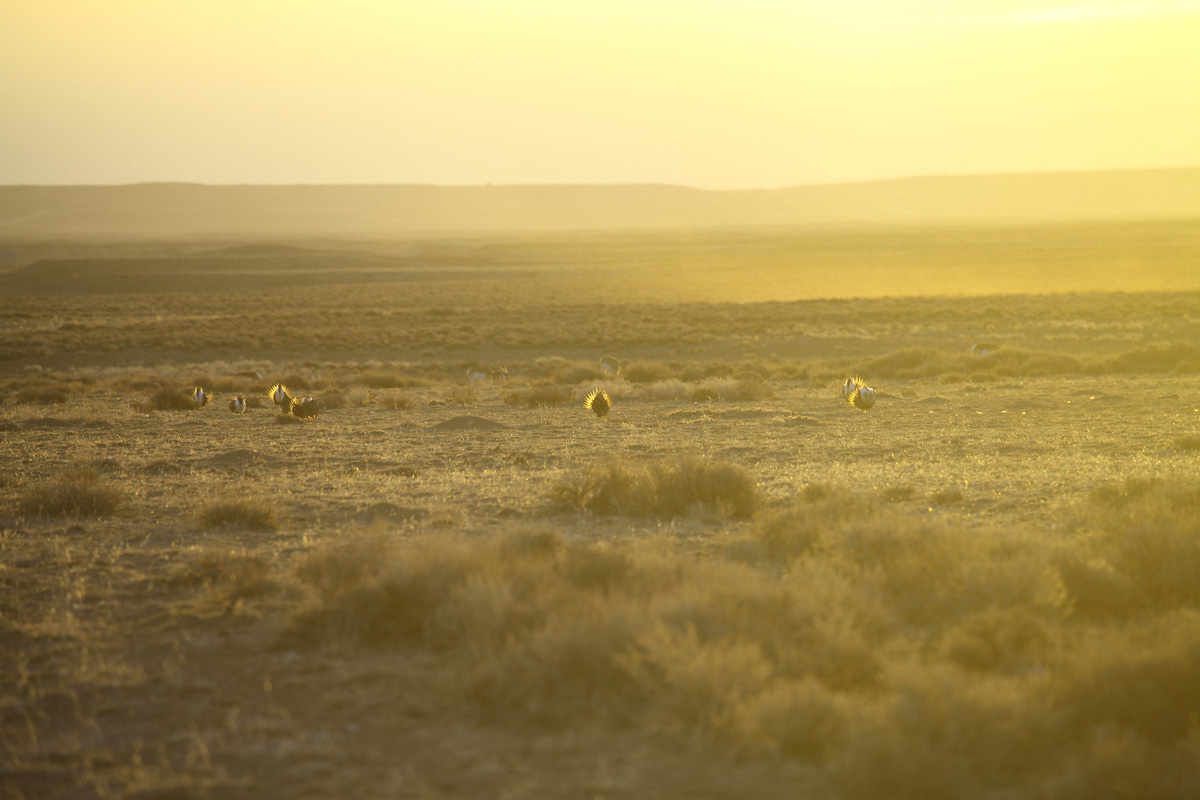
With momentum behind a Senate bill that passed out of committee last week, now is the perfect time to remind lawmakers that the Land and Water Conservation Fund benefits every kind of public land user and has created access or habitat in all 50 states since its inception. Specifically, what we need now is full funding for the LWCF at its annual $900 million potential, which would go a long way toward unlocking the nearly 16 million acres of public land that are entirely surrounded by private land and therefore legally inaccessible to the Americans who own them. Add your voice to this rallying cry.
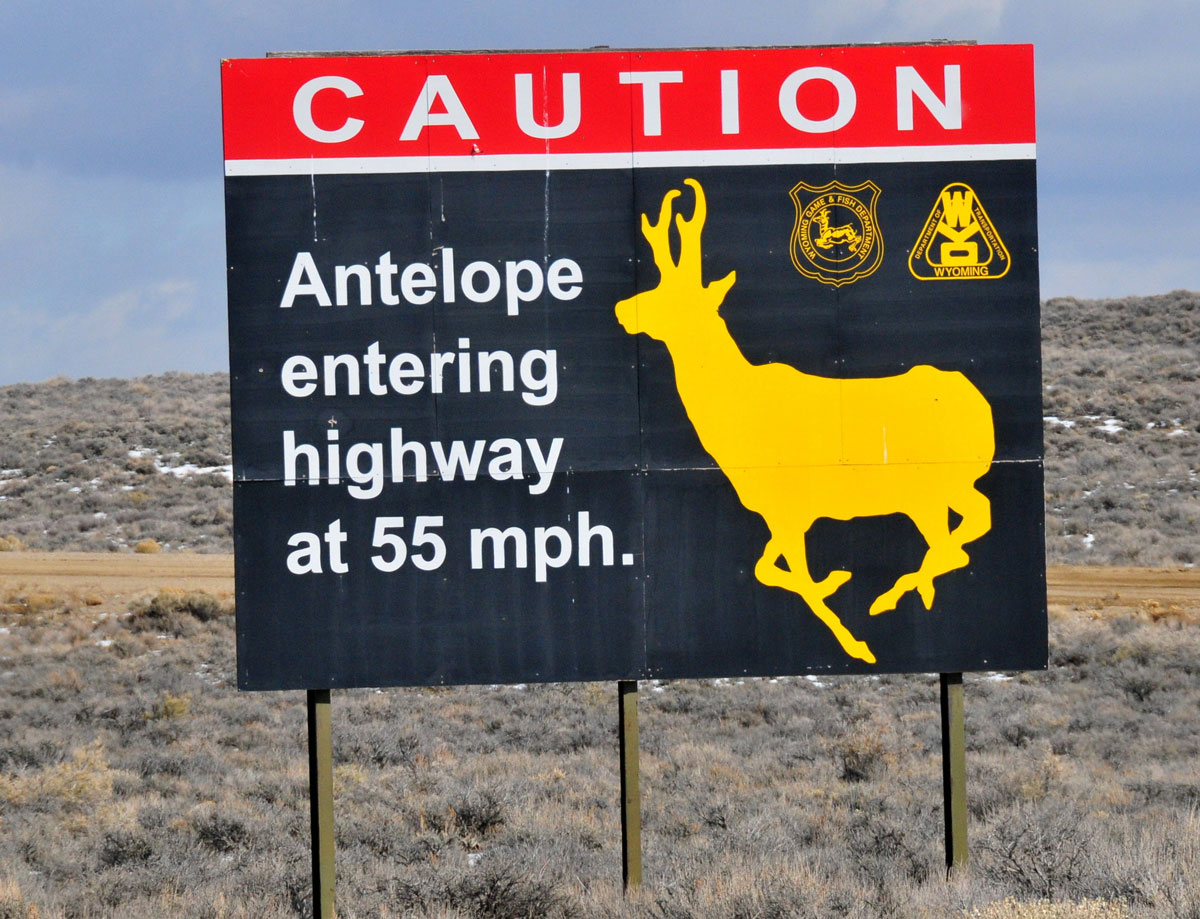
In many parts of the country, you’re highly likely to encounter deer or other critters crossing the road on your way to grandma’s house this week. This risk of collision is no good for drivers or wildlife, and Congress has a chance to make a dedicated effort to keep animals off busy roadways—something that Western states say they’d prioritize if they had dedicated funding. Take action to ask lawmakers for a Highway Bill that sets aside funding for wildlife-friendly overpasses, underpasses, culverts, and other crossing structures that benefit wildlife and motorists.
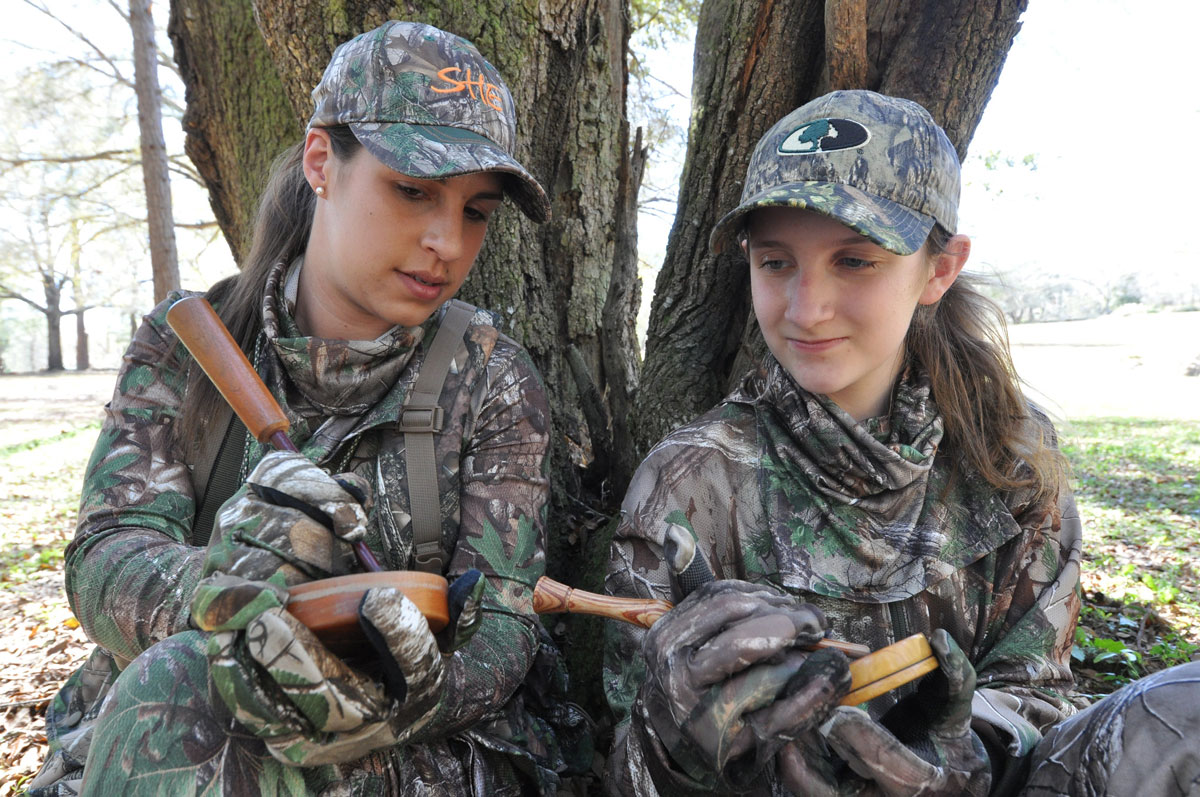
Sometimes just getting informed is half the battle—and that’s where these videos come in: Deer hunters can help prevent the spread of chronic wasting disease by following these basic steps in the field. Anglers looking to fish any of the Colorado River’s vast tributary network should understand this about the future of water management in the region. And these clips help explain why redfish and speckled trout aren’t the only ones benefiting from efforts to restore the disappearing coastline along the Gulf of Mexico. Bone up on the basics so you’re ready to act when conservation is threatened.
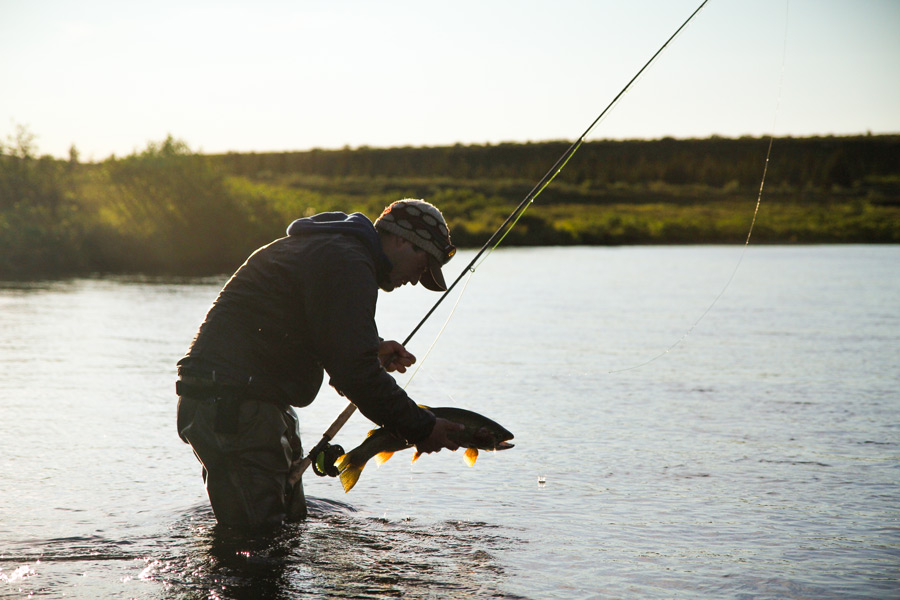
Balanced use of our public lands and natural resources is necessary, but there are some habitats that are too special to risk exposing to the impacts of development. If you dream of mule deer hunting the untouched backcountry of Nevada’s “Swiss Alps” or landing a salmon in Alaska’s famed Bristol Bay, speak up now for legislation and congressional support that will ensure these one-of-a-kind landscapes are there for you and future generations.
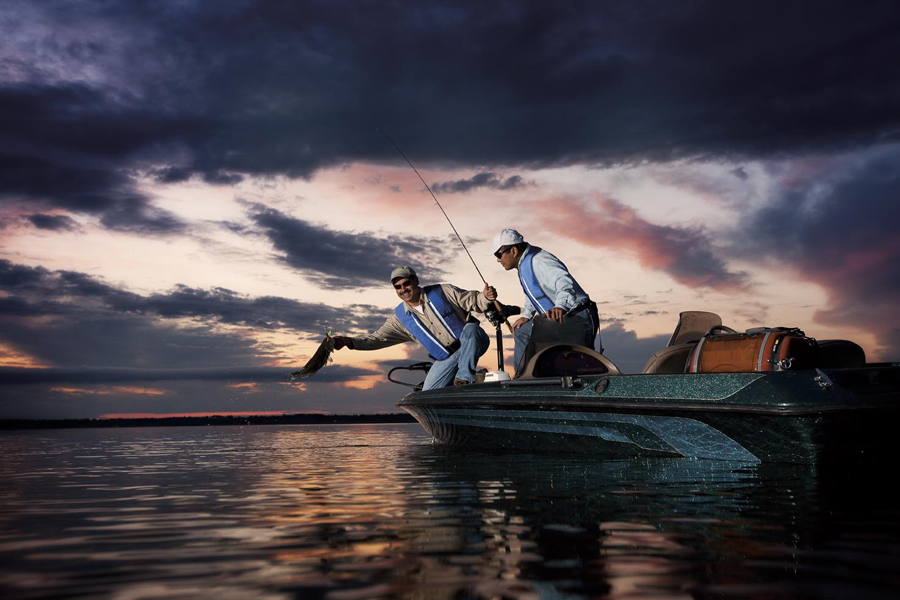
Want to do more right at home? Residents of the Atlantic Coast, Pennsylvania, Wyoming, Alaska, Colorado, Idaho, and other states can find regional conservation issues to support on the bottom half of the TRCP Action Center page. Check it out, fill one out, and fuel more of what you like to do outdoors.
Top photo by Tony Young/FWC.
This summit is only the beginning of a broad and critical conversation that we intend to continue
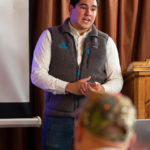 In early October 2019, the TRCP partnered with Hispanic Access Foundation and Nuestra Tierra Conservation Project to host a Hispanic Sportsmen and Women’s Summit in Taos, New Mexico.
In early October 2019, the TRCP partnered with Hispanic Access Foundation and Nuestra Tierra Conservation Project to host a Hispanic Sportsmen and Women’s Summit in Taos, New Mexico.
The summit kicked off with space for each attendee to share a personal item and story that connects them to hunting, fishing, and conservation. Among the items were fly boxes, reels, backpacks, feathers, elk ivories, hats, and photos. The personal stories that accompanied each item emphasized the lessons learned while overcoming challenges and the power of public lands and waterways. Some of the stories also focused on the important role of mentorship in hunting and conservation and the critical need for experienced hunters and anglers to share their expertise.
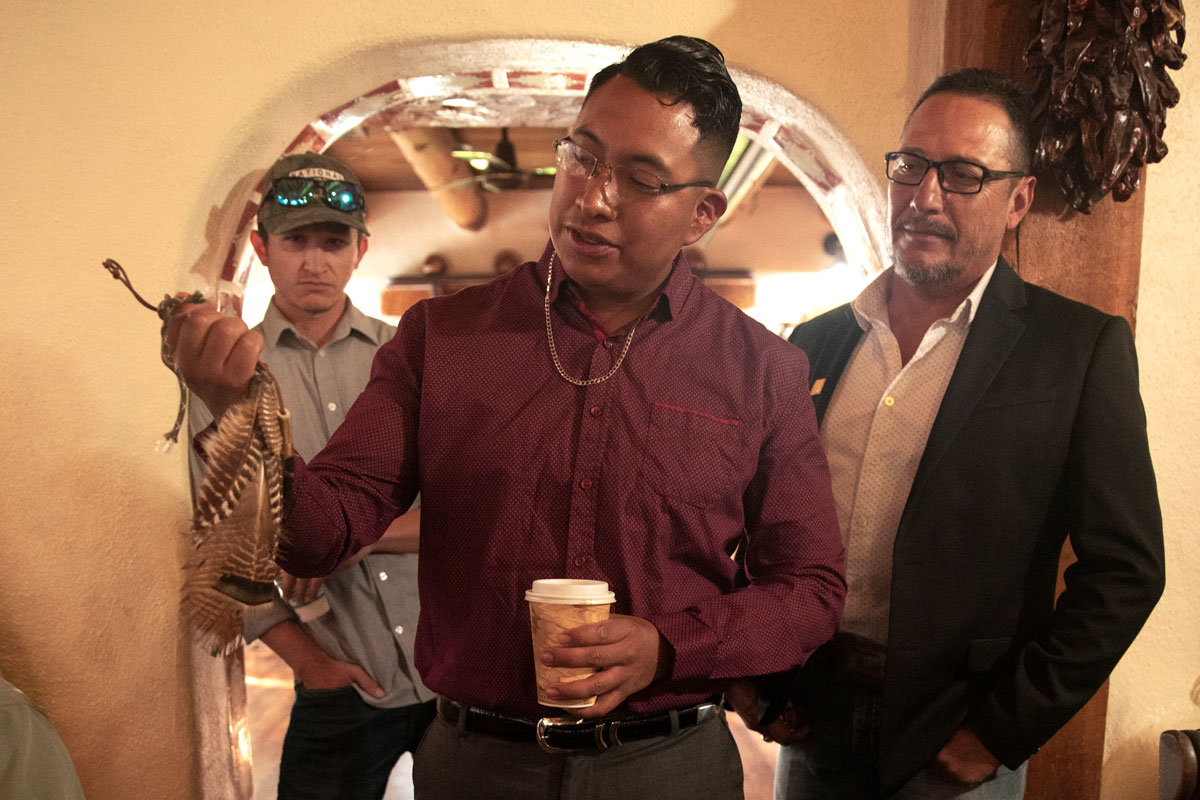
Organizations were given time to share presentations and highlight how we can work together to advance mutual interests. While we share similar conservation goals, the summit also provided an outlet to discuss how mainstream conservation groups could facilitate and foster diversity and broaden authentic outreach to underrepresented sportsmen and women communities. By recognizing and addressing barriers of access, we can bolster sportsmen and women participation in communities of color. To improve conservation outcomes nationally, everyone needs to be brought to the table.
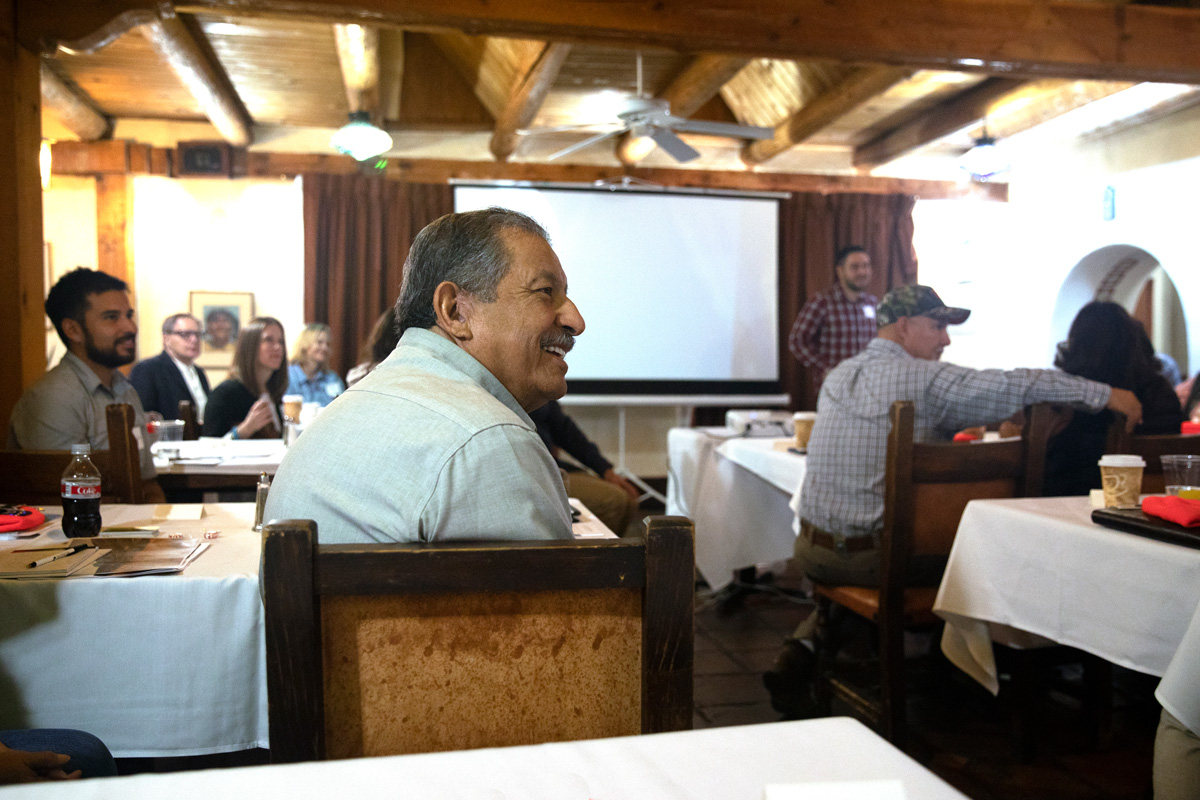
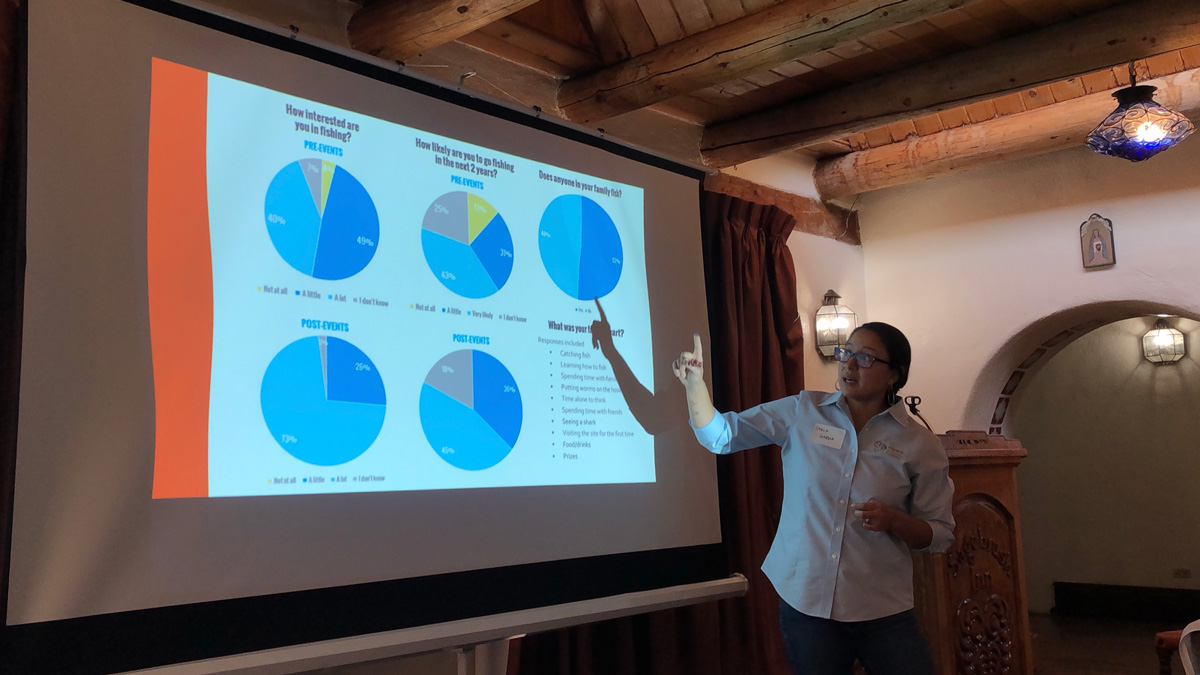
The final morning of the Hispanic Sportsmen and Women’s Summit was spent flyfishing on the Rio Grande River, where some of the luckier (or more skilled) anglers in the group caught some brown and Rio Grande cutthroat trout.
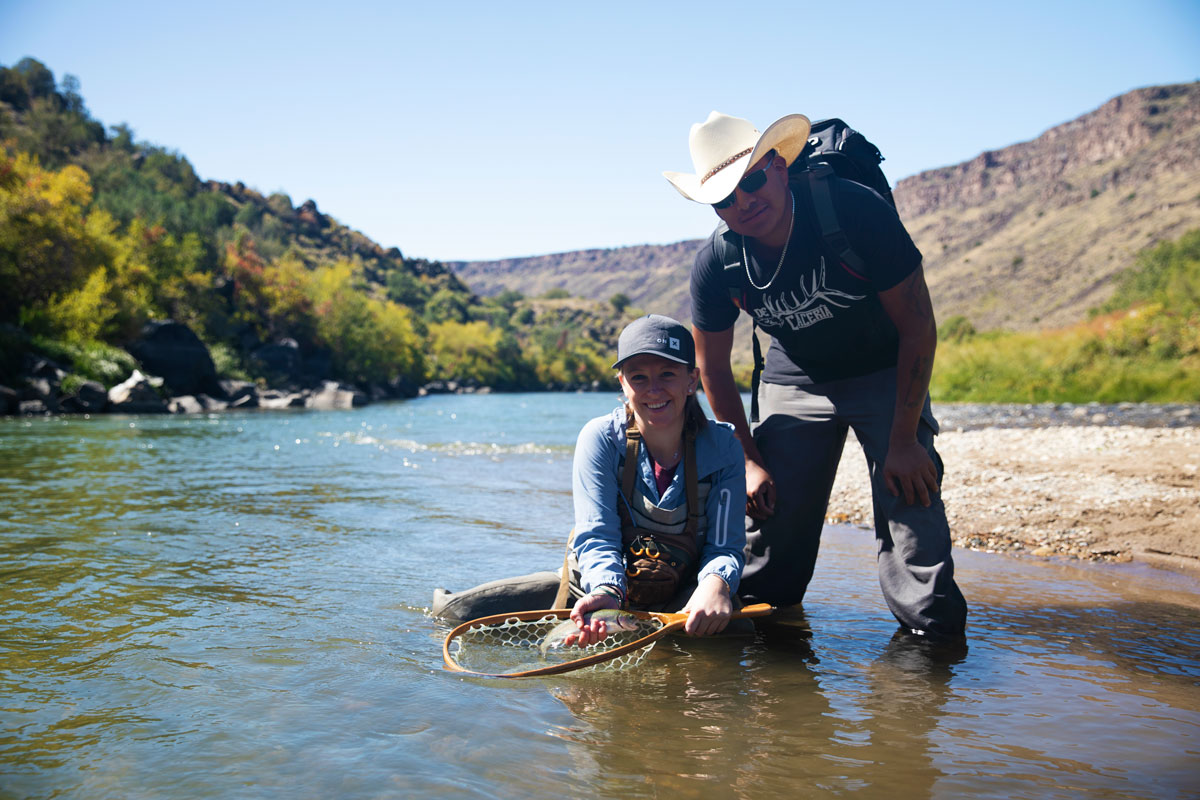
Special thanks to Hispanic Access Foundation, Nuestra Tierra Conservation Project, New Mexico Wildlife Federation, Trout Unlimited, Backcountry Hunters & Anglers, National Wildlife Federation, Ducks Unlimited, Bass Pro Shops, De Caceria, Pheasants Forever, Artemis, HECHO, Recreational Boating and Fishing Foundation, New Mexico Game and Fish, Where the River Runs, and Colorado Parks and Wildlife for their attendance and commitment to increasing Hispanic and Latino voices in our sport.
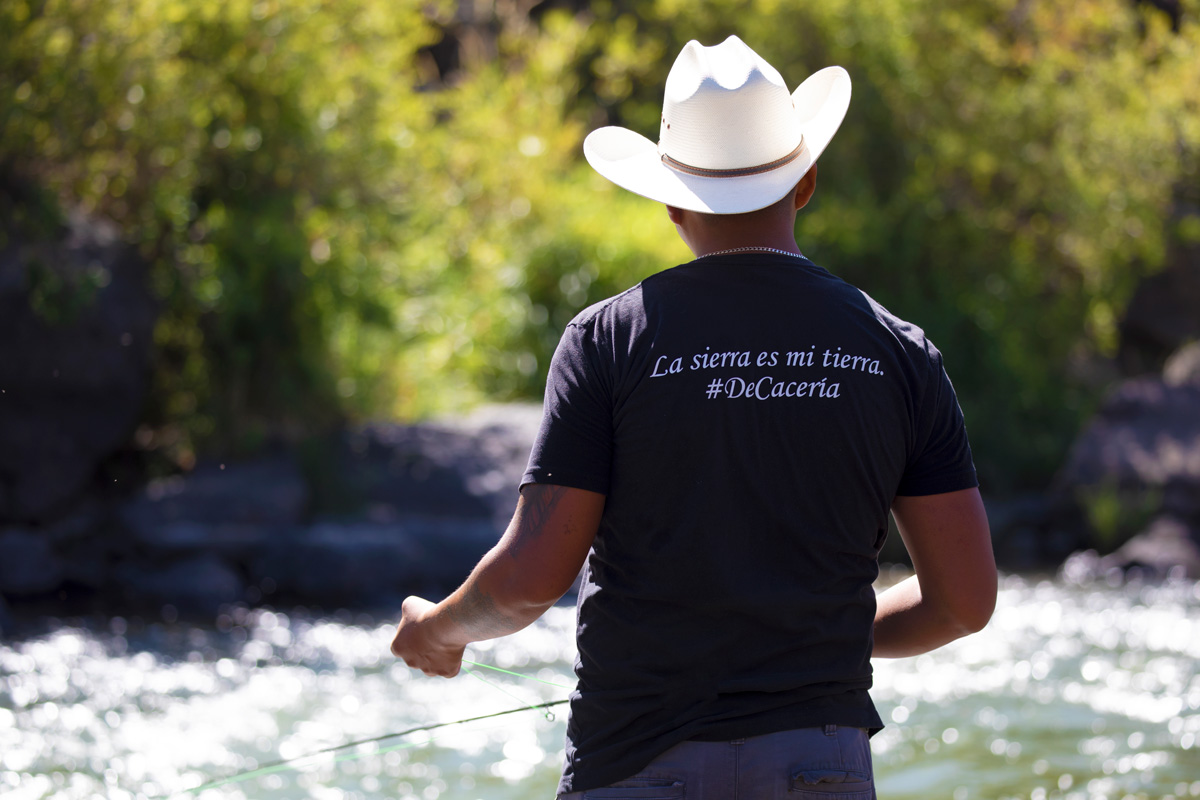
This summit is only the start of an ongoing and critical conversation. Learn more about what the overall decline in hunting participation could mean for conservation funding in America.
When Congress returns from about a month spent with in-state constituents, the clock will be ticking on these spending bills and conservation policies we need to get across the finish line
You might be picturing lawmakers on a five-week vacation, but the annual August recess is time that senators and representatives spend meeting with their constituents and visiting with leaders in their communities. Ideally, they also find some time to enjoy the outdoors and experience what we all value so much as sportsmen and women.
Of course, we hope they’re thinking about the legislative to-do list for when they return in September, because the timeline grows short for several critical conservation items that must be addressed to benefit fish, wildlife, and habitat. Here’s what we need Congress to move on before the end of the year or, in some cases, within weeks of their return to Capitol Hill.
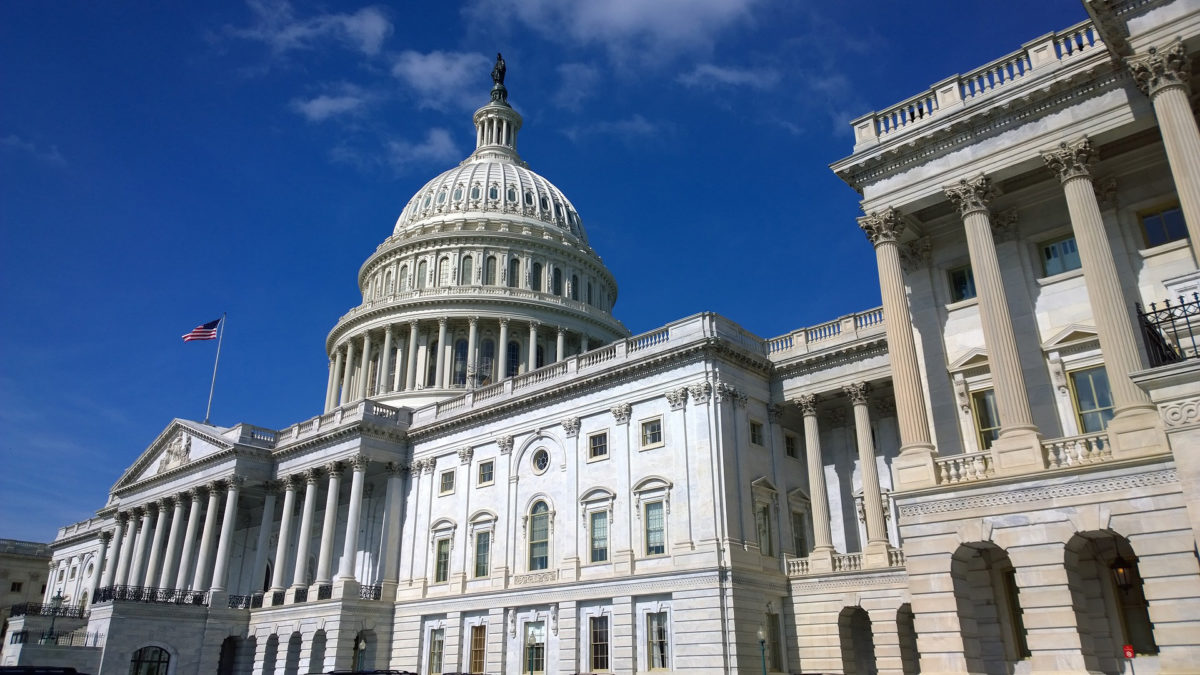
A familiar debate awaits when Congress returns to Washington: writing and passing all the required appropriations, or annual spending, bills. Now that both the House and Senate have reached a two-year, bipartisan budget deal they must pass appropriations bills for Fiscal Year 2020, which starts on October 1. This means that Congress must find a way to fund the government for the next year before the end of September, or they risk another government shutdown.
The House’s spending measures passed earlier this summer include landmark wins for conservation including strong investments in—and in some cases new funding for—Farm Bill conservation programs, the Land and Water Conservation Fund, chronic wasting disease surveillance and research, and critical infrastructure projects from the Everglades to the Front Range.
The ball is now in the Senate’s court to support conservation in their own appropriations bills and send it all to the president’s desk. What happens if they don’t? The government shuts down while they agree on a deal or lawmakers can give themselves an extension by passing what’s known as a continuing resolution. CRs keep money flowing at previously agreed upon funding levels, but they prevent new funding going to something like CWD research that has never been done before.
Before leaving town, the Senate Environment and Public Works Committee unanimously passed a new highway bill that includes a powerful new tool for conservation: a $250-million pilot program to construct wildlife crossings such as overpasses, underpasses, and culverts across the country over the next five years.
State departments of transportation, wildlife biologists, and conservationists have been urging Congress to provide dedicated funding for crossings to restore and improve habitat connectivity within migration corridors and reduce deadly wildlife-vehicle collisions where animals are often found crossing roads.
This also marks the first time that climate change language has been included in a highway bill. As written, the legislation creates a grant program called PROTECT to prioritize natural infrastructure solutions as roads and bridges are being planned, which would help to restore and improve ecosystem conditions around passenger roads.
All in all, senators on the committee have been trailblazers for conservation in the next iteration of the highway bill. Now, it’s on the House to get the job done.
In fact, the House can do even more for conservation in its forthcoming version of the bill by increasing funding for the Federal Lands Transportation Program, which supports the ongoing maintenance of passenger roads through public lands. Carrying on the chronic underfunding of U.S. Forest Service roads through FLTP will contribute to an already colossal deferred maintenance backlog on these important public lands.
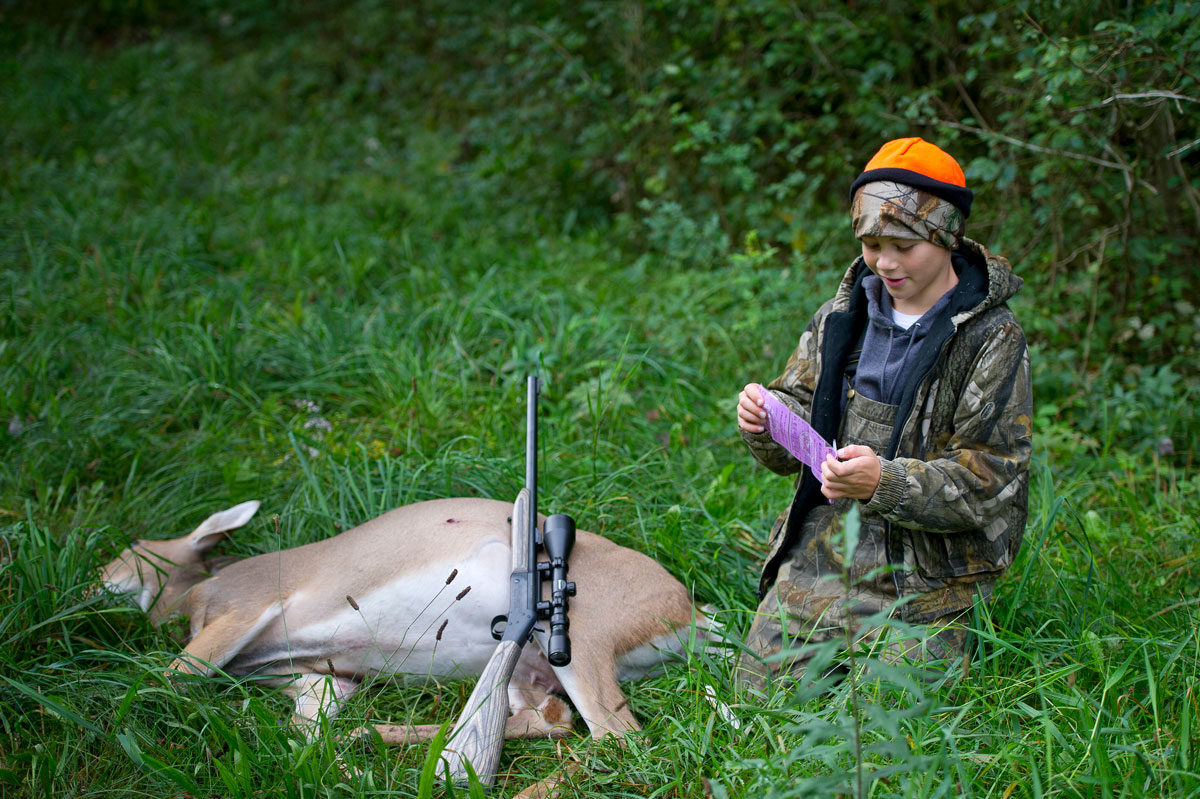
The TRCP and our conservation partners have been leading the charge to update a vital source of funding for state fish and wildlife agency conservation efforts—the Pittman-Robertson Act. Right now, the fund created from excise taxes on firearms, ammunition, and archery equipment can’t be used to help recruit, retain, and reactivate (R3) hunters.
It’s time for that to change.
Congress has already updated the policy for fishing-related spending to give state agencies the ability to recruit new anglers. And this has likely helped to drive the recent bump in fishing participation and a more than 36-percent increase in spending on fishing equipment, which in turn creates an increase in funding for conservation.
It’s time for Congress to modernize Pittman-Robertson and allow similar outreach campaigns for hunters. Before the recess began, the Senate introduced S. 2092, a companion bill to the House’s H.R. 877. These bipartisan bills, aptly titled the Modernizing the Pittman-Robertson Fund for Tomorrow’s Needs Act, are essential to help fund, preserve, and grow our rich heritage of hunting.
Last Congress, a similar measure passed unanimously out of the House but did not make the end-of-year finish line. Now that the legislation has been introduced in both chambers, passage of this long-overdue legislation is a no-brainer. It’s a bipartisan success story waiting to happen.
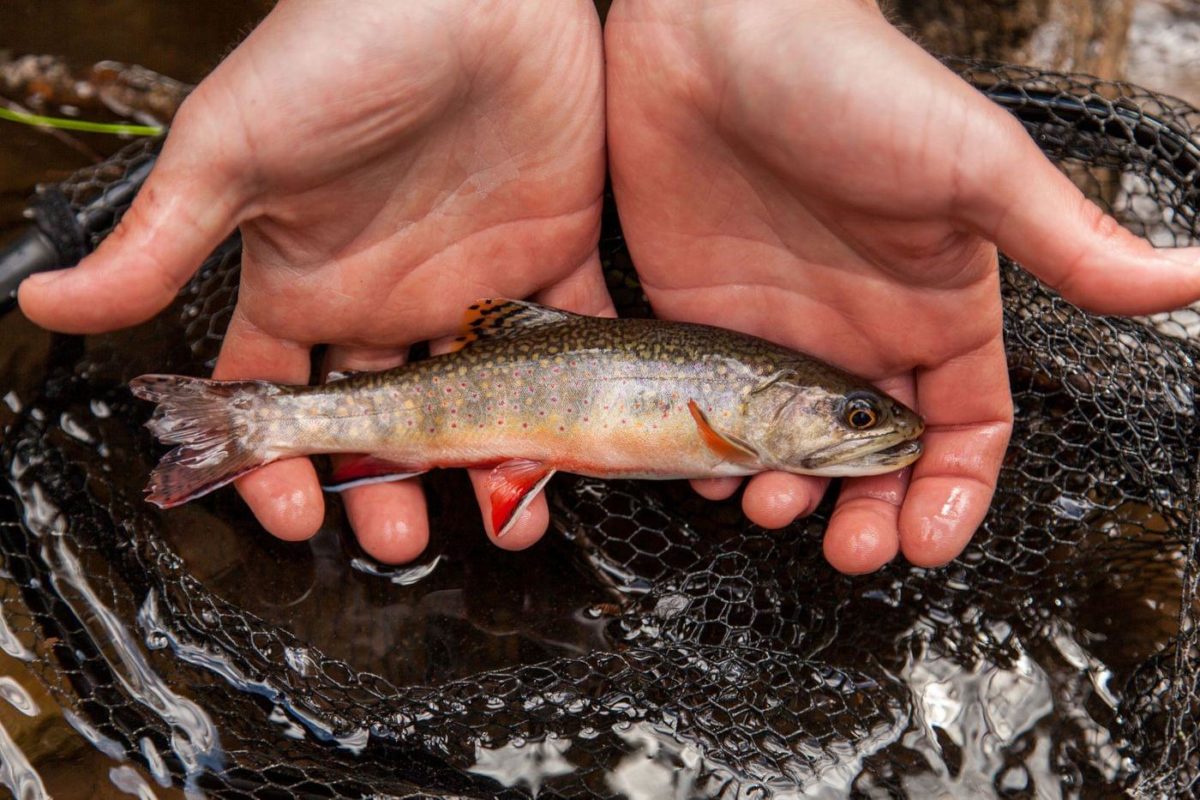
From the Gulf to the Great Plains, there’s a lot happening this summer that affects our fisheries and the anglers who enjoy them, including pending legislation that deserves a vote without further delay.
The National Fish Habitat Through Partnerships Act—H.R. 1747 in the House and S. 754 in the Senate—would permanently authorize and provide funding for one of the nation’s best tools to protect and restore fish habitat across the nation. Comprised of 20 individual partnerships that advocate for regionally specific projects, this model has been effective for years but still limps from authorization to authorization, depending on the whims of Congress.
But legislation introduced in both chambers is vote-ready and can end this vicious cycle.
Another easy win would be passing legislation to conserve forage fish, which support all the sportfish we love to pursue. Numerous pressures, including changing ocean conditions and overfishing by commercial interests, have led to a decline in forage fish populations, which could shorten or even end recreational fishing seasons for the predators that rely on these baitfish.
Bipartisan legislation in the House, the Forage Fish Conservation Act (H.R. 2236), aims to ensure that forage fish remain in the marine food web by introducing a variety of commonsense, science-based provisions into existing management plans. These include creating a national, science-based definition for forage fish in federal waters, accounting for predator needs, assessing the impact of commercial fisheries on marine ecosystems before authorization, and requiring that managers consider forage fish when establishing research priorities.
Anglers are dependent on forage fish to keep our fisheries healthy and we are, in turn, depending on Congress to act now on this major conservation priority.

Numerous conservation-wins-in-waiting are ready for congressional action once lawmakers return to Capitol Hill. Though the most pressing demand for legislators will be drafting and passing appropriations bills that strengthen our nation’s investment in conservation, we need to turn their attention to other measures that preserve wildlife, improve habitat connectivity, and ensure the future of our hunting traditions.
After the spending deadline has passed, the 2020 election will take a lot of the air out of the room, and we need to clinch these victories before that happens.
Theodore Roosevelt’s experiences hunting and fishing certainly fueled his passion for conservation, but it seems that a passion for coffee may have powered his mornings. In fact, Roosevelt’s son once said that his father’s coffee cup was “more in the nature of a bathtub.” TRCP has partnered with Afuera Coffee Co. to bring together his two loves: a strong morning brew and a dedication to conservation. With your purchase, you’ll not only enjoy waking up to the rich aroma of this bolder roast—you’ll be supporting the important work of preserving hunting and fishing opportunities for all.
Learn More

